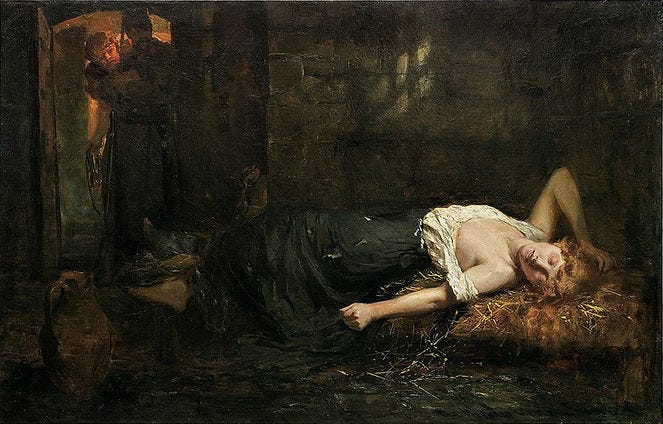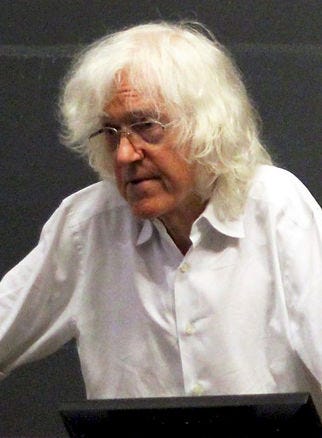Is moral realism necessary for life to have meaning?
The Nihilist by Paul Merwart, 1882
Moral realists will say things like "if moral realism isn't true, then life is meaningless." Consider this remark from an upcoming book about Parfit:
For Parfit, the stakes could scarcely have been higher. If he couldn’t demonstrate that there are objective facts about right and wrong, he believed, his life was futile and all our lives were meaningless.
This sounds very much like Christians who claim that without God, life would be meaningless. In fact, I suspect the origins of the former may be due in part to sentiments inspired by the latter, since I suspect much of moral realism's appeal stems from our enculturation into religions that construe the world as a contested battleground between the cosmic forces of good and evil. When Christians make claims like this, a common response is to ask if they would stop caring about friends and family if they became an atheist. What about moral realists? Would they stop having moral concerns if they became moral realists? Would they be more motivated to do bad things? More indifferent to suffering? Would they stop caring about the people around them? I doubt it. Maybe they'd experience a sense of loss or listlessness or negativity for some time, but I suspect in most cases people who become antirealists don't feel life is "meaningless" in some deep and serious way. I'm tempted to make yet another comparison to gastronomic realism. I take it most people probably don't endorse gastronomic realism, and wouldn't if they knew what it was: the claim that there are facts about what food is "gastronomically good and bad" and facts about what you should eat or not eat on purely gastronomic grounds, and that such facts are not reducible to our preferences or values. Do gastronomic antirealists (which I bet would be most people on reflection) stop caring about what food they eat? Does food lose its flavor? Do they stop having preferences about pizza toppings and ice cream flavors? No. Because in these cases what makes these things good *just is* our preferences. There never was anything else for food to derive its gastronomic value from other than our own preferences. Why think morality is any different?
The photo above is from a talk Parfit gave at Harvard in April 2015. It is the picture that appears in the Wikipedia entry. I happened to be at this particular talk, and it was the one time I saw Parfit in person. So it was a surprising coincidence to find the photo that was used was from an event where I was physically present. It was not an especially large room, either. Some of us went with Parfit to a restaurant afterwards, which I believe was called Clover. He was generous with his time and I was glad I had the chance to see the talk. I



